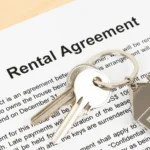Analyzing and Interpreting Tenant Feedback: A Key to Successful Property Management
Analyzing and interpreting tenant feedback is crucial for successful property management. At Avenue Residential Leasing & Management, we understand the value of listening to our tenants to enhance their living experience and maintain high occupancy rates. Tenant feedback offers insights into areas needing improvement, helps resolve issues promptly, and fosters a positive community atmosphere.
Serving a diverse tenant base across Missouri, including Chesterfield, St. Louis, St. Charles, we are committed to providing exceptional property management services tailored to each community’s unique needs. By prioritizing tenant feedback, Avenue Residential Leasing & Management ensures a thriving and satisfied resident population, contributing to the overall success of our properties.

Importance of Tenant Feedback
Tenant feedback is a cornerstone of successful property management. It provides invaluable insights that help property managers understand tenants’ needs and preferences. Property managers can actively seek and analyze tenant feedback to create a more responsive and tenant-centric environment, ultimately leading to higher satisfaction and retention rates.
Why Tenant Feedback is Crucial for Property Managers?
Tenant feedback is essential for several reasons. Firstly, it offers a direct line of communication between tenants and property managers, allowing managers to address issues promptly and effectively. Feedback can highlight areas that need immediate attention, such as maintenance problems, security concerns, or community amenities. By addressing these issues swiftly, property managers can prevent minor problems from escalating into major ones.
Moreover, tenant feedback helps property managers gauge their tenants’ overall sentiment. Understanding whether tenants feel valued and heard can significantly impact their decision to renew their lease. Positive feedback can reinforce good practices, while constructive criticism can guide improvements, ensuring that the property remains a desirable place to live.
How Feedback Can Improve Tenant Satisfaction and Retention?
Feedback is a powerful tool for enhancing tenant satisfaction and retention. When tenants see that their opinions matter and lead to tangible changes, they are likelier to feel a sense of loyalty and commitment to the property. This sense of community and belonging can significantly reduce tenant turnover, lowering the costs of finding and onboarding new tenants.
For instance, if multiple tenants express dissatisfaction with the cleanliness of common areas, a property manager can take immediate action to improve cleaning schedules or hire additional staff. By addressing such concerns, property managers demonstrate their commitment to maintaining a high standard of living, which can foster a positive tenant experience.
Furthermore, regular feedback collection can help property managers avoid potential issues. Proactively seeking tenant opinions through surveys, suggestion boxes, or online platforms allows managers to identify trends and areas for improvement before they become significant problems. This proactive approach enhances tenant satisfaction and positions the property as a proactive, tenant-focused community.
Role of Feedback in Identifying Areas for Improvement
Tenant feedback plays a crucial role in identifying areas for improvement within a property. It provides a clear picture of what is working well and what needs attention. For example, feedback about outdated facilities or insufficient parking can prompt property managers to invest in upgrades or expansions, enhancing the overall tenant experience.
Additionally, feedback can reveal hidden issues that may not be immediately apparent. For instance, tenants might report recurring noise disturbances or pest problems that require targeted interventions. By addressing these issues promptly, property managers can maintain a high standard of living and prevent negative reviews or complaints.
Methods for Collecting Tenant Feedback: Enhancing Property Management Strategy
At Avenue Residential Leasing & Management, we understand the importance of tenant feedback in maintaining high-quality rental properties. Collecting tenant insights helps us improve our services and ensures a positive living experience for our residents.
- Survey techniques
- Digital platforms
- Regular check-ins
Analyzing and Interpreting Feedback
Analyzing and interpreting feedback is crucial for property management companies in Chesterfield, MO, like Avenue Residential Leasing & Management. It provides insights into tenant satisfaction, highlights areas for improvement, and helps maintain a high standard of service.
Importance of Feedback in Property Management
Feedback is an invaluable asset in the property management industry. For Avenue Residential Leasing & Management, operating in Chesterfield, MO, understanding and interpreting feedback can significantly enhance service quality and tenant satisfaction. Feedback helps identify areas for improvement, recognize strengths, and align services with tenant expectations.
Collecting Feedback
Collecting feedback from various sources is crucial to effectively analyzing and interpreting it. These can include:
- Tenant Surveys: Regular surveys can provide insights into tenant satisfaction and areas needing improvement.
- Online Reviews: Platforms like Google, Yelp, and social media offer unfiltered tenant opinions.
- Maintenance Requests: These often highlight recurring issues and areas where the property may need attention.
- Direct Communication: Encourage tenants to share their thoughts through emails or in-person meetings.
Categorizing Feedback
Once feedback is collected, the next step is to categorize it. This helps identify patterns and prioritize issues. Categories can include:
- Maintenance and Repairs: Issues related to property upkeep and responsiveness to maintenance requests.
- Customer Service: Tenant interactions with management and staff.
- Amenities: Feedback on the quality and availability of property amenities.
- Lease Terms: Opinions on lease conditions, including rent prices and contract flexibility.
Analyzing Feedback
Analyzing feedback involves looking for trends and common themes. Here’s how to do it effectively:
- Quantitative Analysis: Use numerical data from surveys to measure satisfaction levels. For example, if 80% of tenants are satisfied with maintenance services, that’s a positive indicator.
- Qualitative Analysis: Read through comments to understand the context behind the numbers. This can reveal specific issues or praise that numerical data alone might miss.
- Sentiment Analysis: Determine the overall sentiment of the feedback. Are tenants generally happy, or is there a lot of dissatisfaction?
Interpreting Feedback
Interpreting feedback means understanding what it implies for your property management practices. Consider the following:
- Identify Actionable Insights: Look for feedback that suggests specific actions. For example, this area needs improvement if multiple tenants mention slow response times to maintenance requests.
- Prioritize Issues: Not all feedback will be equally important. Prioritize issues based on their impact on tenant satisfaction and property operations.
- Recognize Strengths: Positive feedback is just as important. It highlights what you’re doing well and what you should continue or expand upon.
Implementing Changes
Feedback is only valuable if it leads to action. Here’s how Avenue Residential Leasing & Management can implement changes based on feedback:
- Develop Action Plans: Create a detailed action plan for each major issue identified. This plan should include specific steps, timelines, and responsible parties.
- Communicate with Tenants: Let tenants know their feedback has been heard and what changes will be made. This can improve tenant satisfaction and encourage future feedback.
- Monitor Progress: Regularly review the effectiveness of changes implemented. Are the issues being resolved? Are tenants noticing improvements?
Continuous Improvement
Feedback analysis should be an ongoing process. Regularly collecting, analyzing, and interpreting feedback ensures continuous improvement in property management practices. It helps Avenue Residential Leasing & Management stay ahead of tenant needs and maintain high service standards.
Final Thoughts
Analyzing and interpreting tenant feedback is crucial for successful property management. Key points discussed include the importance of actively collecting feedback, understanding tenant needs, and making informed decisions based on their input. Collecting and acting on feedback should be a continuous process to foster a positive tenant experience in feedback.
Property managers must proactively seek and respond to tenant feedback, ensuring their properties remain desirable and well-maintained. By prioritizing tenant satisfaction, Avenue Residential Leasing & Management can achieve ongoing success and build strong, lasting relationships with their tenants.






